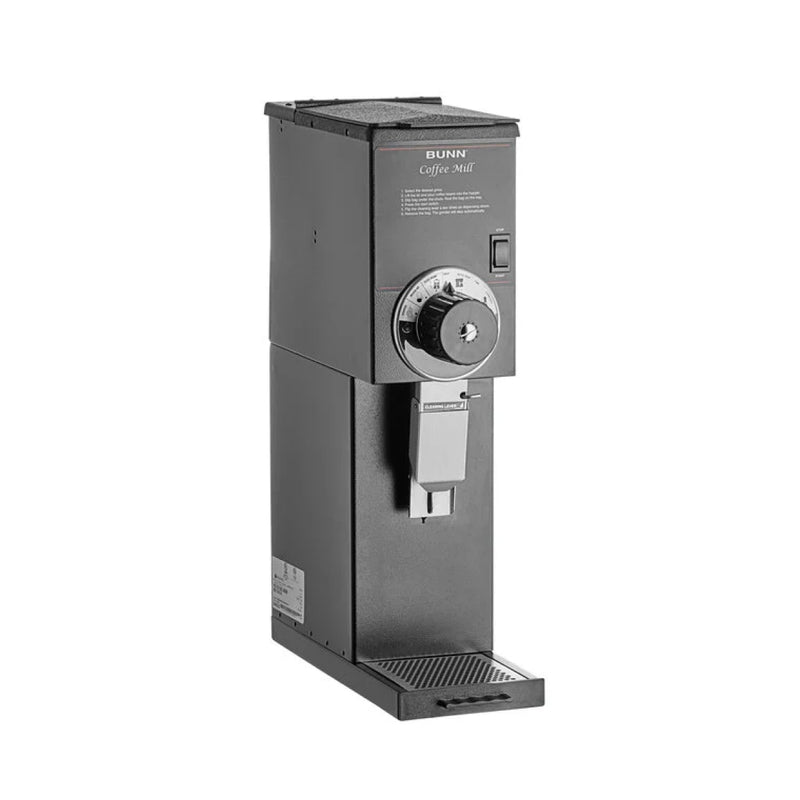Industrial Coffee Mill Overview: Increase Effectiveness and Top Quality
In the competitive landscape of coffee production, choosing the ideal industrial coffee mill plays a crucial function in improving both performance and product quality. Comprehending the nuances of various grinder kinds and crucial functions-- such as adjustable grind settings and robust building-- can dramatically affect the last taste account of the coffee.
Comprehending Grinder Types
When selecting an industrial coffee grinder, understanding the numerous kinds offered is essential for maximizing both taste extraction and functional efficiency. Both key kinds of grinders are blade grinders and burr mills. Blade mills use sharp blades that chop coffee beans right into inconsistent dimensions, leading to irregular extraction and potentially unfavorable flavors. While blade mills are usually a lot more budget friendly and suitable for small operations, they are generally not recommended for commercial use.

Eventually, picking the right kind of mill is essential to maintaining high quality and efficiency in coffee manufacturing, making it necessary for companies to buy premium burr mills for optimal results.
Trick Attributes to Consider
Choosing an industrial coffee mill needs cautious consideration of a number of crucial attributes that can dramatically affect both performance and the overall coffee experience. Among the main facets to evaluate is the grinding mechanism. Burr grinders are normally liked over blade grinders, as they offer a constant work dimension, which is important for optimum removal and taste.
One more important feature is the grinder's capacity. A versatile mill with numerous setups enables you to tailor the grind size to various developing techniques, improving the coffee's taste account.
Review the grinder's sound level, especially in an active café or manufacturing atmosphere, where too much noise can be turbulent. Investing in a grinder that stabilizes these features can significantly enhance both operational performance and the quality of the coffee served.
Optimizing Grinding Process
To attain the ideal results in coffee preparation, enhancing the grinding procedure is important. The grind size dramatically affects removal, taste, and total quality of the brewed coffee.


Additionally, keeping track of the grinding speed can optimize the process. Slower grinding typically generates much less warmth, maintaining fragile tastes and fragrances. Conversely, faster grinding may generate extreme warmth, negatively impacting the coffee's quality.
Upkeep and Treatment Tips
Correct upkeep and treatment of commercial coffee grinders are crucial for guaranteeing optimum performance and original site longevity. Normal cleaning is the foundation of upkeep; deposit buildup can influence flavor and grinding performance. It is advisable to clean the mill after each use, wiping down the outside and eliminating any type of coffee premises from the burrs.
Furthermore, check the grinding burrs for deterioration. Dull burrs can endanger grind consistency, so they ought to be changed as required. Industrial Coffee Grinder. Periodically adjusting the grinder is additionally crucial, as this keeps the preferred grind dimension for various developing methods
Lubrication of relocating parts should be executed according to the maker's specifications, as this reduces rubbing and extends the life of the equipment. It is important to utilize read food-grade lubricants to ensure security and compliance with health and wellness regulations.
Last but not least, keep the grinder in a completely dry and stable setting to avoid rust and corrosion. By sticking to these maintenance and care pointers, operators can boost the efficiency of their industrial coffee mills while making certain high-grade output and prolonged functional life.
Return on Investment Evaluation
Evaluating the return on investment (ROI) for industrial coffee mills is vital for organizations seeking to optimize their coffee production abilities. A detailed ROI evaluation helps determine the monetary feasibility of buying high-quality mills, enabling organizations to consider the first prices versus potential gains.
To carry out a detailed ROI evaluation, services must think about a number of crucial elements. Assess the acquisition price of the grinder, consisting of installment and any type of needed adjustments to existing infrastructure. Next, calculate functional expenses, including power usage, maintenance costs, and labor effectiveness improvements. High-performance mills typically bring about reduced grinding time and increased throughput, which can dramatically enhance productivity.
Furthermore, consider the effect on product top quality. Industrial Coffee Grinder. Superior grinders generate an even more constant grind size, which can improve taste accounts and customer satisfaction, inevitably driving sales. By increasing the top quality of the final product, services can justify greater pricing, resulting in boosted revenue
Final Thought
In summary, an industrial coffee grinder plays a critical role in enhancing both efficiency and product quality within coffee production. Ultimately, the strategic investment in a reputable grinder contributes significantly to improved earnings and competitiveness in the coffee market.
In this link the competitive landscape of coffee production, selecting the best commercial coffee mill plays a crucial function in improving both effectiveness and item top quality. The two primary kinds of mills are blade grinders and burr grinders. Within the burr mill group, there are level burr grinders and conelike burr mills, each with its advantages. Burr grinders are usually liked over blade mills, as they offer a consistent grind dimension, which is essential for optimum extraction and flavor.
In recap, an industrial coffee grinder plays a pivotal duty in improving both efficiency and item high quality within coffee production.